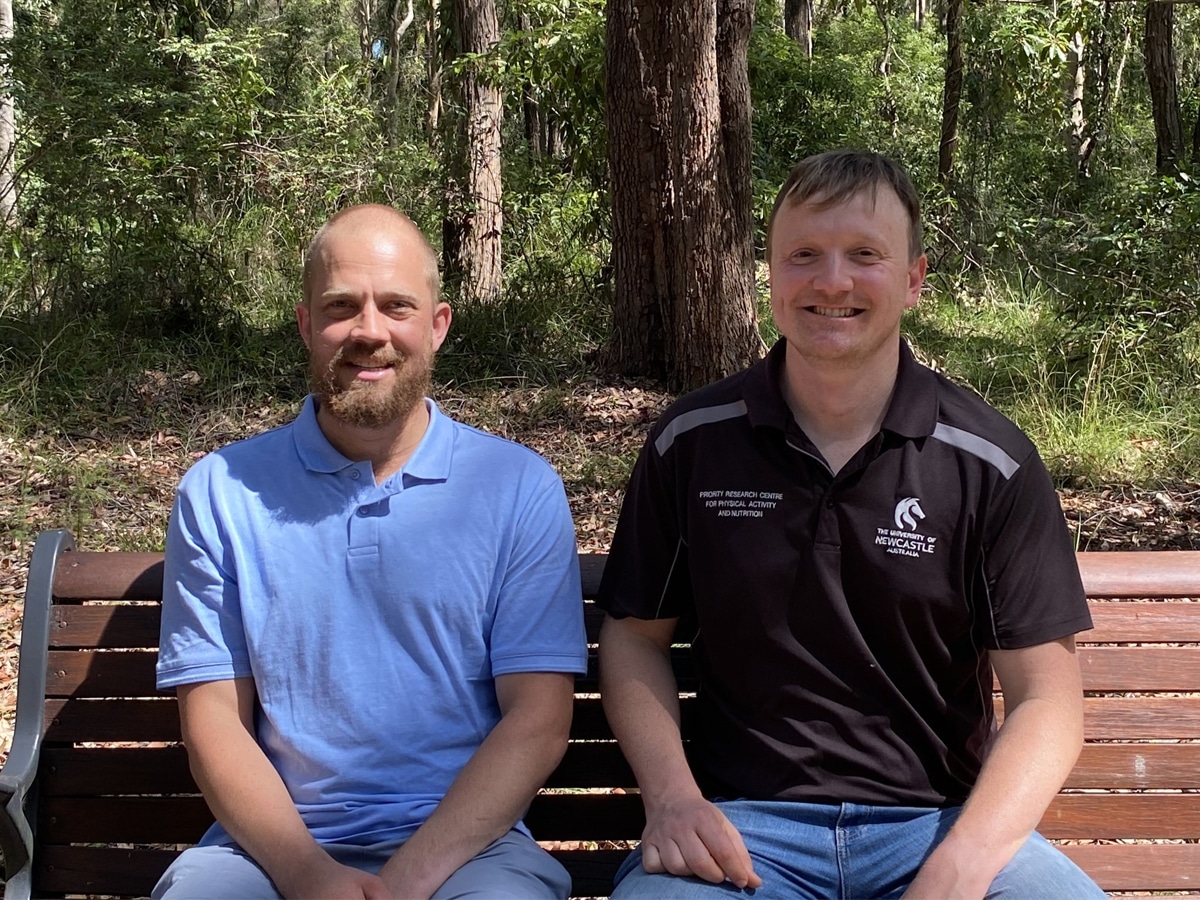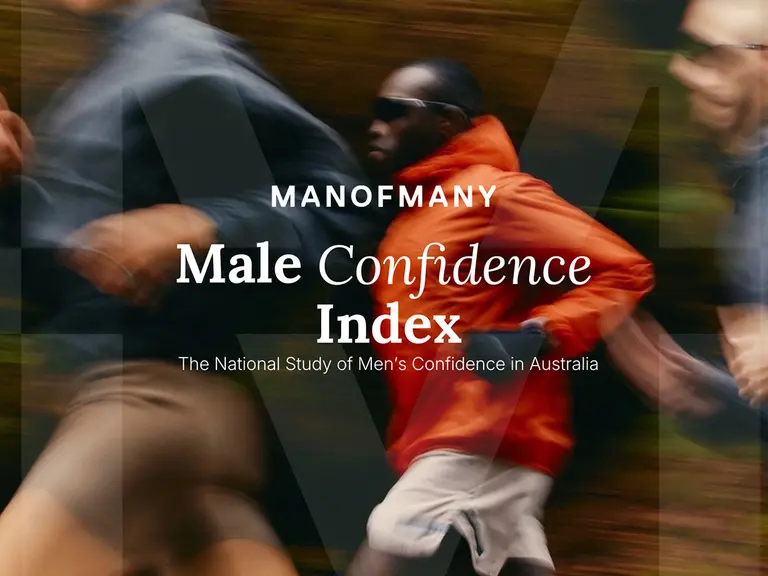
Published:
Readtime: 7 min
Every product is carefully selected by our editors and experts. If you buy from a link, we may earn a commission. Learn more. For more information on how we test products, click here.
We’ve heard the statistics, we know the consequences, and yet the depression epidemic crippling Australian men remains as consistent as ever. New data from the University of Newcastle has revealed that while depression remains one of the country’s leading causes of disease burden, less than 40 per cent of those experiencing mental health issues seek help. Even more concerning, nearly half of those who do attend therapy drop out prematurely, often after just one session. For many Australian men, the road to recovery is often paved with silence, but a new initiative is aiming to tackle the issue head-on.

The Walk and Talk Revolution
Unveiled as part of a broader Men’s Health Week initiative, the Hunter Medical Research Institute (HMRI) is encouraging men to step outside of their comfort zones and into the great outdoors. Led by Associate Professor, Hunter Medical Research Institute and the University of Newcastle, Dr Myles Young, the new ‘Walk-and-Talk’ clinical trial is reimaging how therapy is delivered, swapping the leather couch and doctor’s surgery for a more pristine and inviting environment. The idea is simple: by shifting the sessions outdoors and to a more relaxed setting, men will feel more comfortable, open and free to speak up.
“We are really excited about this study. At its core, we are hoping to answer a simple question: does changing the setting of therapy have an impact on how engaging and effective it is for men?” Dr Myles Young says. “There are some potential added benefits of engaging in therapy outdoors, including the chance to be physically active and get exposed to nature. Some men may also like the shoulder-to-shoulder nature of the conversations.”
The innovative approach is designed to tackle what Dr Young believes is a significant mental barrier for young men: the rigidity of conventional therapy. Just as the causes of depression are complex and unique to each person, often the result of biological, psychological and social factors, so too should the therapy be tailored to an individual’s needs. In an extensive study of almost 2,000 Australian men who had attended therapy, the most common reasons for dropping out were a lack of connection with the therapist, followed by a sense that attending therapy just ‘didn’t feel right’.
“Some men drop out because they feel therapy isn’t relevant to them, too formal, or overly focused on emotions in ways that can feel confronting or uncomfortable,” Dr Young says. “Others may struggle to see the immediate, practical benefits, or may feel shame for needing help. Therapeutic approaches that don’t align with men’s communication style or preferences can also lead to disengagement.”

Addressing the Hurdles
For many Australian men, mental health challenges remain a closely guarded secret. Issues surrounding public image and traditional ideals represent a significant barrier to entry, preventing a vast number of depression sufferers from seeking help.
“Many men value independence, problem-solving, and resilience, which are great strengths in most circumstances. However, these same qualities can also make it harder to reach out for support,” Dr Young says. “Rather than a lack of willingness, it’s often that men have been conditioned to believe they should ‘push through’ on their own. Reframing help-seeking as a courageous, proactive step can help, as it aligns with the values men often hold.”
“Traditional masculine norms like emotional stoicism, self-reliance, and the need to appear strong often discourage men from acknowledging distress or seeking help,” he continues. “These norms can contribute to feelings of shame or failure when men face mental health struggles, making them less likely to engage with therapy.”

The Road to Long-Lasting Mental Health
The positive news is that things are changing. Dr Young reveals that a growing awareness amongst Australian men that seeking help is not a sign of weakness, but rather of strength, is spreading rapidly, buoyed by the spate of open discussions from celebrities, athletes and high-profile media personalities. As the mental health expert explains, the shift in sentiment is helping to create more avenues for treatment; however, there is still work to be done.
“It’s great to see more male public figures openly discussing their mental health challenges. It’s even more powerful to see everyday men start to have these conversations with each other,” he says. “While men are still less likely than women to seek help for their mental health, the gap is closing over time. There is still a way to go, but there has been great progress in recent years.”
“As a society, we can continue to actively challenge social norms that suggest men should be tough, self-reliant, and emotionally restrained. By creating environments that normalise help-seeking and position it as a sign of strength and responsibility, we can shift the narrative around what it means to be a man.”

Men’s Therapy Study
While formal therapy settings clash with society’s traditional expectations of masculinity, the ‘Walk-and-Talk’ method creates shared ownership of the space in which therapy takes place, and it’s not the only initiative challenging the industry standards. As Dr Young reveals, a series of projects are being rolled out across the globe in a combined effort to make therapy more engaging for men.
The Australian Government’s recent announcement of an additional $32 million in funding is one key step in supporting men’s health and breaking the stigma around seeking support. Projects such as Movember’s ‘Men in Mind’ program are specifically designed to equip mental health professionals with the skills and strategies needed to effectively engage, support, and retain male clients in therapy. According to Dr Young, the key to making therapy more accessible and inviting is understanding how mental challenges arise and impact everyday Australians.
“Research has an important role to play as it can help us understand the specific barriers men face, the types of language and strategies that resonate with them, and which therapeutic styles improve engagement and retention,” he says. “By continuing to build this evidence base, we can design services that are not only more appealing but also more effective in supporting men over the long term.”
“There are many paths to good mental health. Therapy can be incredibly helpful, but it’s not necessarily the right fit for everyone at every stage of their life. If someone is going through a tough time, a great first step is to have a conversation with a general practitioner, who can provide guidance and help explore the options that might work best for them.”
The ‘Walk-and-Talk’ clinical study, which is a collaboration between Hunter Medical Research Institute and the University of Newcastle, is set to kick off in the coming months. Tackling the depression epidemic with a fresh new look, the revised therapy approach has the potential to lead to improved engagement and clinical outcomes. For a group most at risk of falling out of therapy and through the cracks, the informal method could prove to be a lifesaver. Right now, the HMRI is calling for male participants to help shape the future of mental health treatment, one step at a time.































Comments
We love hearing from you. or to leave a comment.